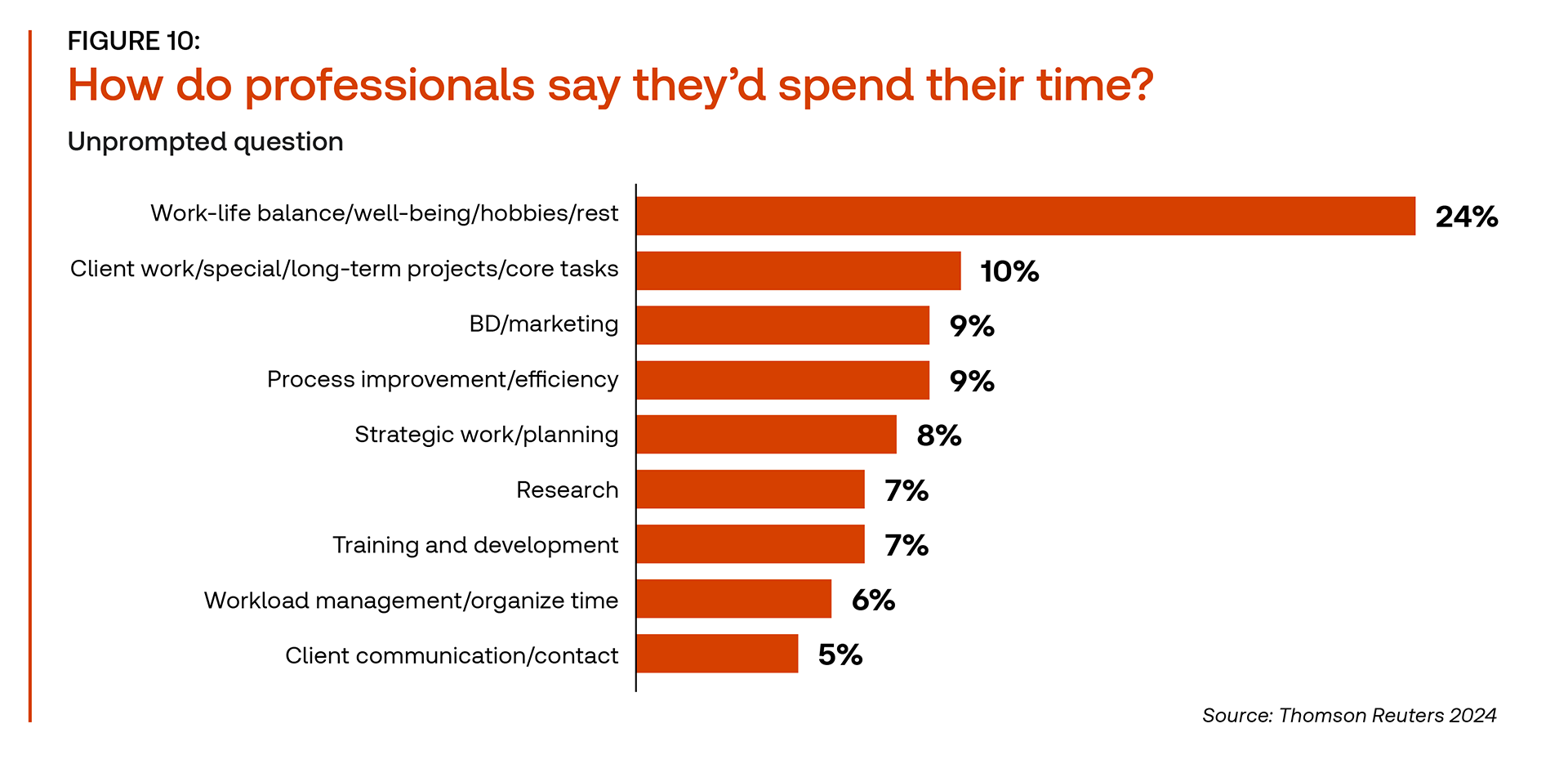The real opportunity of generative AI lies not in the work it will replace, but in the opportunity for greater value it will create — and it’s up to users like lawyers to determine how to put the times savings to the best use
Lawyers, like the rest of us, only have a finite amount of time. For most of us, that existential reality is enough to inspire everything from introspection, to ennui, to going “3.7 seconds on a bull named Fu Manchu” (with apologies to Tim McGraw).
For lawyers, however, a lack of time not only inspires a grappling with mortality, but a real and true challenge to earning a livelihood.
I’ve long argued that the legal industry is unique in many ways, but perhaps no more so than the fact that lawyers start every year by essentially announcing just how much money they’ll be able to make in a year. What do I mean? Lawyers bill by the hour, meaning that if they’re not working an hour, they’re not making money. You can take a lawyer’s hourly billing rate, multiply it by the number of realistic working hours in a year, and you’ve arrived at that lawyer’s maximum revenue potential for any given year. No upsell. No ancillary revenue. Just a hard cap.
If a lawyer is truly willing to push to (or even past) burnout, the maximum number of realistic working hours in a year is roughly 3,120 (60 hours per week, 52 weeks per year). With very few superhuman exceptions, lawyers do not, in fact, work and bill that many hours in a year. Most lawyers report billing around 1,800 hours per year, although our most recent data report indicates that the average lawyer actually bills far fewer hours per year. Yet, most lawyers still work far more hours than they bill their clients for and bill more hours than they actually get paid for.
Which begs the question, why work hours for which you will never be paid?
Making the input match the output
This is where generative artificial intelligence (GenAI) enters the chat. Among the many promises GenAI carries, perhaps one of the most likely to become reality is the possibility of streamlining lawyers’ daily workflows and reducing the amount of time they spend on both non-billable tasks and unbilled time.
First, some quick definitions are in order. Non-billable time is time devoted to tasks that are, by their very nature, not billable, such as administrative work, business development, associate training, etc. Unbilled time, by contrast, is time spent on work that could or even should be billable, but goes unbilled for some reason, most typically because the partner managing the matter feels like things are getting too expensive and the client might balk.
GenAI clearly has the potential to impact legal work in a variety of ways. The first places that law firms should look to deploy it are places in which there are current sources of waste, such as non-billable and unbilled hours. Every hour not spent on a task for which the lawyer will never be paid is an hour that than can be redirected to something more valuable.
What does more valuable time look like for a lawyer?
The recent Future of Professionals report from Thomson Reuters found that lawyers reported AI could save them up to four hours per week or roughly 200 hours per year by providing more streamlined work processes. In terms of increased value, that’s a lot of time. And it goes straight to the return on the investment a law firm makes on AI technology.

The temptation is, of course, to convert all of that time savings into billed and collected time. However, there are other, perhaps equally valuable ways that time could be used.
Here are just a few suggestions:
-
-
- Associate training and development — Correcting associates’ mistakes is a huge time sink for partners. Time spent training them to be better lawyers faster will limit their mistakes and turn them into profitable contributors to the firm more rapidly.
- Learning business development skills — Lawyers often complain of being caught in a conundrum: They’re too busy to learn how to get better at developing new client business, but they don’t have enough work to keep themselves and their associates busy. Less time spent on unproductive tasks can help address this quandary.
- Developing thought leadership — Clients like to hire experts. Positioning yourself as a thought leader in your given practice area can be an incredibly effective way to win new business. That means investing the time to create content that your potential clients will find when they research their legal issues.
- Time away from work — This is, perhaps, one of the most overlooked benefits of spending less time on unproductive work. If lawyers can improve work-life balance by matching the time they spent working more closely to the time they’ll actually get paid for, they will ultimately spend fewer unproductive hours working, leading to lower turnover and related replacement costs for the firm.
-
Of course, there is no one right answer to what lawyers can or should do with the potential time savings to be had from the improved efficiencies stemming from leveraging GenAI. It is important to consider, however, the myriad options that getting more time can provide.
None of us have all the time in the world — but we can do our best to make sure we make the most of the time we do have.
You can download a full copy of Thomson Reuters 2nd annual Future of Professionals Report, here.







